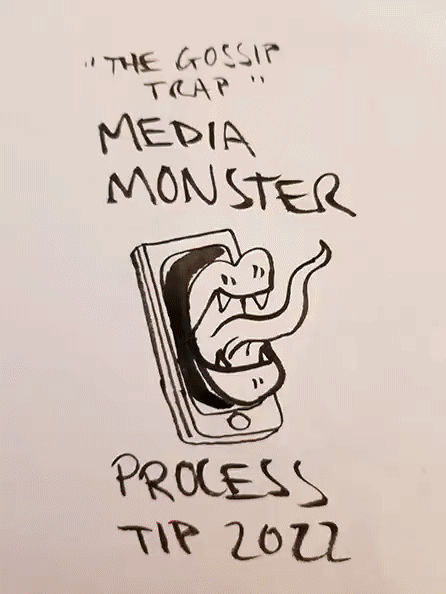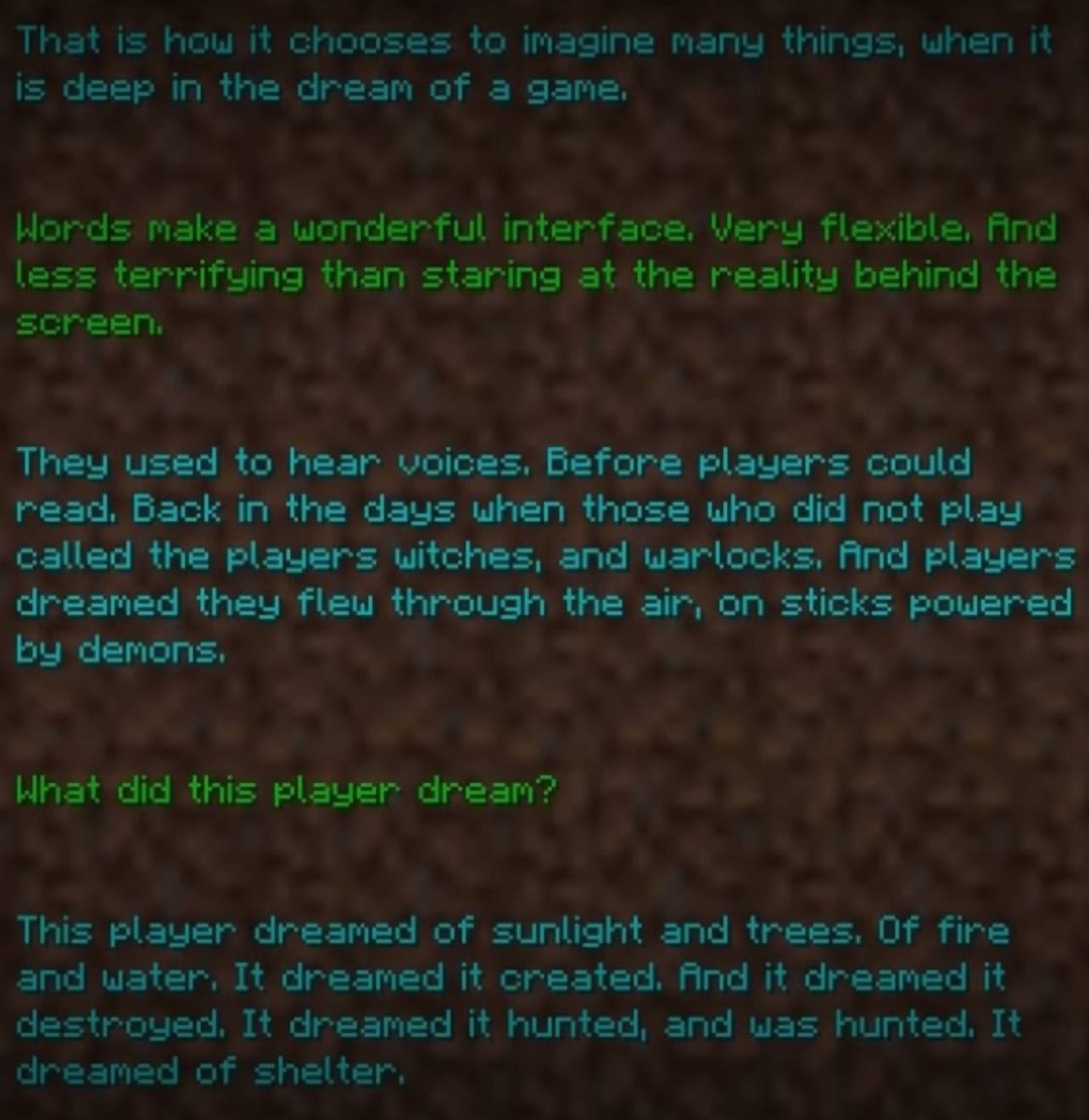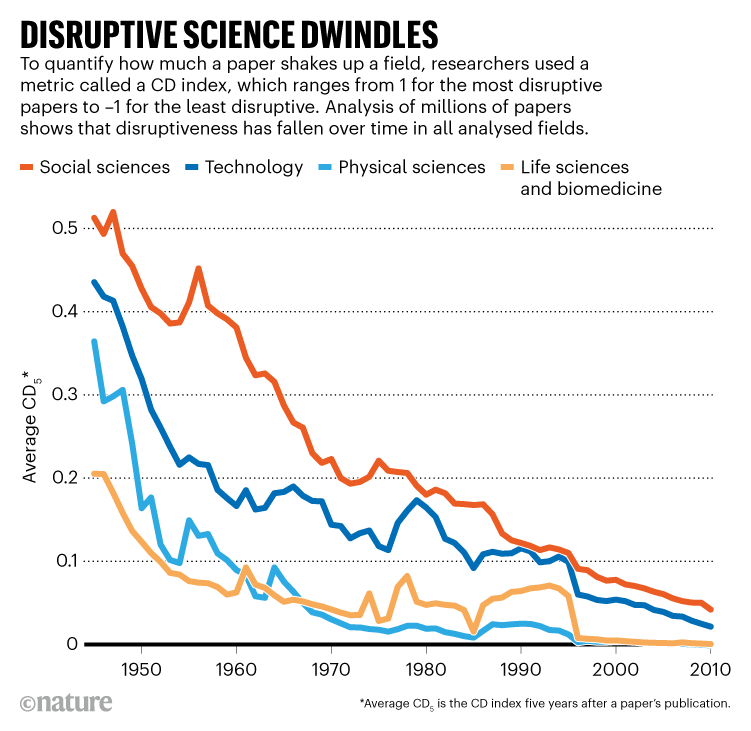Sam Harris podcast appearance, Minecraft's End Poem, science slows down
Desiderata #9: links and commentary
The Desiderata series is a monthly roundup of links and thoughts, as well as an open thread and ongoing AMA in the comments.
1 of 16. Since the last Desiderata, The Intrinsic Perspective published:
The banality of ChatGPT: Passing the Turing test turns out to be boring
2022 was not the year of consilience: The divide between the Two Cultures got worse this past year (paid only)
8 New Year's resolutions for The Intrinsic Perspective (and 1 for me): A look behind, a look ahead
2 of 16. One of the most common debates around homeschooling children is whether they will be socially stunted. And this certainly is a reasonable concern—after all, most lifelong friendships are forged in the fires of school. For much the same reasons those at war form bonds, I suppose. But is school actually mentally healthy, in general? Is there actually a benefit, socially, to going to school, on average? This is so difficult to measure, and there’s not much research I can find on it. However, Covid led to a massive experiment of essentially homeschooling, and the results are. . . interesting.
3 of 16. Cool little video of how Alex illustrates TIP after receiving early drafts.
4 of 16. I’m certainly not alone in finding ChatGPT a bad writer (and of course, even just two years ago I never would have thought it could be as good as it is). I feel, very strongly, that I can tell the difference between AI-generated text and not. At least for longer excerpts. What’s going on?
It turns out ChatGPT-generated text does look, statistically at least, significantly different than human-generated text, and there’s now an app/website that can tell the difference. There are a few more as well, but what’s interesting about this one is that it doesn’t do it via just modeling GPT itself and reverse engineering how likely a phrase is to come from the model (a lot of approaches are like this, and this approach does also include that) but it also looks at a statistical property of the text called “burstiness.”
Burstiness is how often the tone, or rhythm, or even content of writing, changes. Human writing, it turns out, has natural burstiness, since we focus on and emphasize various different things. Why? Perhaps because we have a stream of consciousness—as William James wrote, our consciousness is like a bird, flying from one branch to perch on another, and then dashing to alight on another, and these changes in our attention are reflected in our writing. But ChatGPT is likely not conscious (or if it is, it has a very different sort) and there is no alighting on one branch and then another, because there is no bird, and there are no branches, and nothing is surprising, nor particularly interesting, there is instead just a process mechanically bent on auto-completing the prompt and therefore putting out results completely uniform and self-similar and undifferentiated. A mind like mud.
5 of 16. Presented without comment.
6 of 16. The recently-released Italian edition of my novel, The Revelations, seems to be doing well. It got covered in Il Manifesto, a daily newspaper that Umberto Eco used to contribute to—they even ran an interview with me, which they translated.
Here’s what the edition actually looks like. The publishers did a really good job!
7 of 16. Who is the most-read poet of the modern age? Oh, there are Instagram stars, and poets who read at the State of the Union, but I think there’s a good claim to be made for a guy named Julian Gough. You probably haven’t heard of him. But have you heard of Minecraft? That you certainly should have, not least because it’s sold 238 million copies. Minecraft is the most popular game of literally all time, and one that defined an entire generation (if you know anyone between the ages of 6 and 20, Minecraft looms larger culturally than essentially anything). It also has an inscrutable poem that plays when you beat the game. It’s called the End Poem. It’s a long fantastical dialogue that scrolls across the screen (here’s just a screenshot):
I like that the most popular game of all time has an ending poem about Being. Julian writes his own Substack now (and is a recommender/friend of TIP), and, in an interesting move, he recently made the End Poem part of the public domain via a viral post.
8 of 16. It’s becoming clearer and clearer that science is indeed slowing down. Particularly disruptive or paradigm-shifting papers have declined, as new data published in Nature shows.
(Sidenote: The End of Science by science journalist John Horgan, which was quite controversial in the 1990s, and dismissed by many, now looks prescient.) It’s obvious now that science has begun to stall out, a giant croaking machine quieting itself. Why? My guess is that most people will explain this with the easy refrain “ideas are getting harder to come by.”
But isn’t it weird that the whole of science, and fields beyond science, are all declining at the same time? Let’s assume that science is indeed “exhaustible” and that ideas are getting harder to come by: shouldn’t it vary significantly by subfield? E.g., maybe we could quickly “mine” out biology, but the fundamentals of physics keep advancing for another couple hundred years. Or vice versa. Maybe economics continues to make major breakthroughs, while the physical sciences flounder. What’s weird—and unremarked upon in the article—is that the decline of science is so uniform. One hint might be that the granting agencies, the very ones that now determine everything about science, are heavily biased toward the incremental:
The authors also analysed the most common verbs used in manuscripts and found that whereas research in the 1950s was more likely to use words evoking creation or discovery such as ‘produce’ or ‘determine’, that done in the 2010s was more likely to refer to incremental progress, using terms such as ‘improve’ or ‘enhance’.
9 of 16. I was a guest on Sam Harris’ podcast, Making Sense.
Interestingly enough, the recording occurred within a day of when Sam abruptly deleted his Twitter account with millions of followers (to widespread consternation from his supporters and celebration from his detractors). In an intro recorded after our podcast, Sam reflects that he felt he was unusually “prickly” during our conversation due to being at the psychological nadir of his relationship with Twitter, and that it was obviously weighing on him through the conversation.
In my own opinion Sam was a fine and a gracious host, both in and out of the official recording, and the conversation only occasionally strayed toward debate, and I felt happy with it. However, I do think we got caught in a loop in the second half, mainly because I was unwilling to significantly push into Sam’s utilitarian definition of wellbeing, which would have made it a debate over the details of his book, The Moral Landscape, and I felt that would have just been unproductive and beyond the reason I came on. Besides, the truth is that, with regards to podcasts, my opinion is that (a) podcasts are fun and interesting, and (b) they are bad for many things, including, say, changing anyone’s mind (certainly, at least, whoever you’re talking to). With that limitation admitted, I’ll likely start occasionally releasing casual podcast episodes here on TIP for paid subscribers once I have a good guest list lined up, but they will mainly be shorter casual chats about a subject, nothing essential, major, or contentious.
I read a little bit of the broader reactions to my appearance on Sam’s podcast online, since his audience is so huge, and while most commenters were in fact quite positive, reading them quickly felt like I was listening in on a conversation I shouldn’t. It was much the same feeling as being in the bathroom stall while a conversation about you, and unaware of you, starts by the sinks. Actually famous people must feel like that 24/7. Sure, they may look impeccably glamorous in their Met Gala clothing, but really, mentally at least, they must spend a huge amount of their time huddling on a toilet in a bathroom stall, listening to others talk about them.
So let me know how you think it went in the comments (and also, please keep in mind, Sam sometimes reads TIP—he says this in the podcast, I’d never out anyone as a reader—he may be in the stall, as it were).










